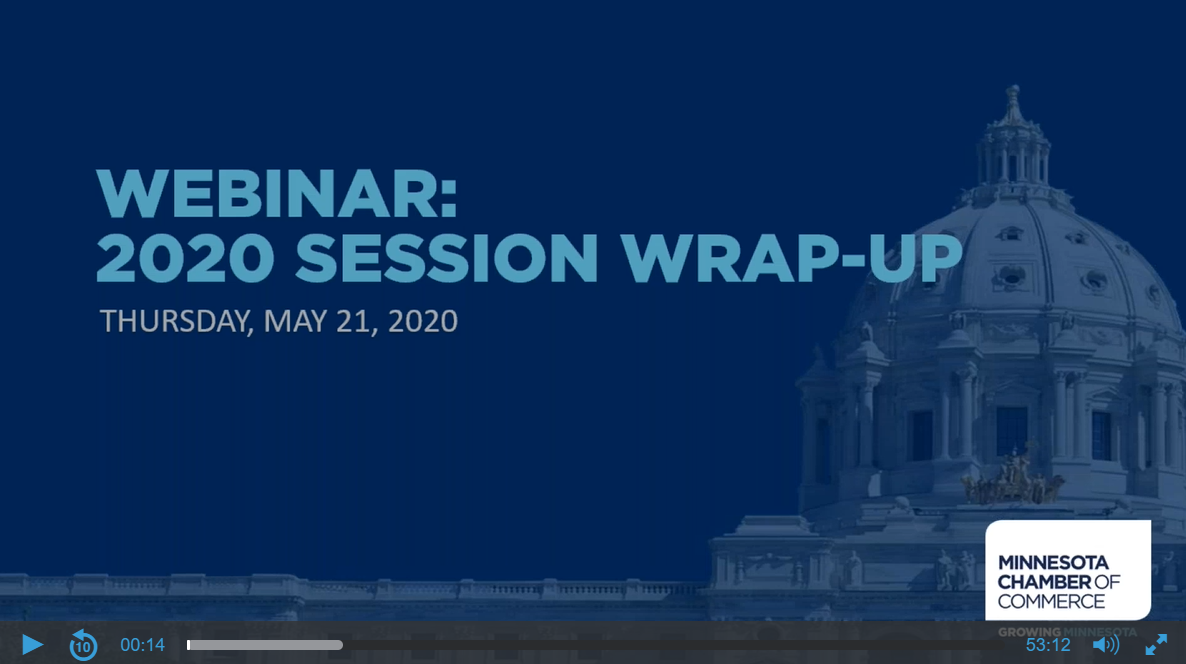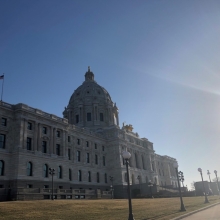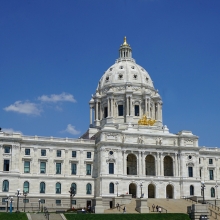How did the 2020 legislative session impact Minnesota businesses?
2020 Legislative outcomes
The COVID-19 pandemic upended the 2020 legislative session, resulting in legislative breaks, remote hearings, limited public engagement and challenges to the governor’s peacetime emergency executive powers. The difficulties culminated to an inconclusive finish at midnight last night. Urgent priorities like delaying tax payments, providing small business relief through federal Section 179 conformity and covering the costs of a new unfunded worker’s compensation mandate were left incomplete. Governor Walz will likely call the Legislature back on June 12 in order to extend his current peacetime emergency authority.
The Minnesota Chamber will urge legislators to bring a laser focus to their work over the next several weeks: to help Minnesota find its footing in the economic devastation the pandemic has brought to so many employers in our state.
| TAX COMPETITIVENESS | WORKPLACE MANAGEMENT | HEALTH CARE |
| ENVIRONMENTAL SUSTAINABILITY | WORKFORCE DEVELOPMENT |
TAX COMPETITIVENESS
Goal: Mitigate COVID-19 economic damage, speed economic recovery, and improve Minnesota’s competitiveness.
Chamber action:
- Supported Section 179 federal conformity, tax payment extensions, federal conformity with interest expensing cap, and pass-through entity election option to allow full deductibility of state income taxes at federal level.
WORKPLACE MANAGEMENT
Goal: Strike balance between safeguarding health, preserving private sector flexibility, and protecting Minnesota’s economy.
Chamber action:
- Developed and broadly shared best practices so businesses can establish own plans and procedures to restart operations and safely and responsibly reopen in line with the state and federal requirements.
- Preserved private-sector flexibility to determine wage, benefit, scheduling, and employee classification.
- Supported explicit statewide preemption of local labor ordinances legislation.
- Preserved legal standard in hostile work environment claims while promoting prevention policies and workplace training programs.
- Cover costs of a new unfunded worker’s compensation mandate.
ENVIRONMENTAL SUSTAINABILITY
Goal: Promote coordination among state regulatory agencies, ensure fair and reasonable regulations, foster economic growth while protecting the natural resources of the state.
Chamber action:
- Promoted 16-year wastewater treatment plant permits for industrial facilities.
- Supported legislative approval of water quality fees.
- Supported clarification of pipeline eminent domain authority.
- Opposed food packaging and other product bans.
- Protected ratepayers from new and increased costs.
- Worked in coalition to stop expensive new energy mandates.
WORKFORCE DEVELOPMENT
Goal: Ensure immediate needs of employers and workforce due to the pandemic.
Chamber action:
- Ensuree rapid rehiring, nimble retraining, and swift upskilling are at the forefront of workforce development discussions.
- Supported aligning education and workforce development efforts with employer needs to ensure our skilled workforce to continue to be a cornerstone of our competitive business climate.
- Supported increased access to targeted Early Learning Scholarships.
- Supported proposed constitutional amendment on education.








